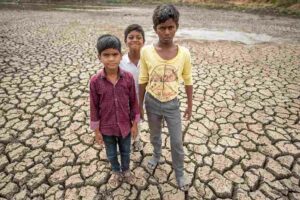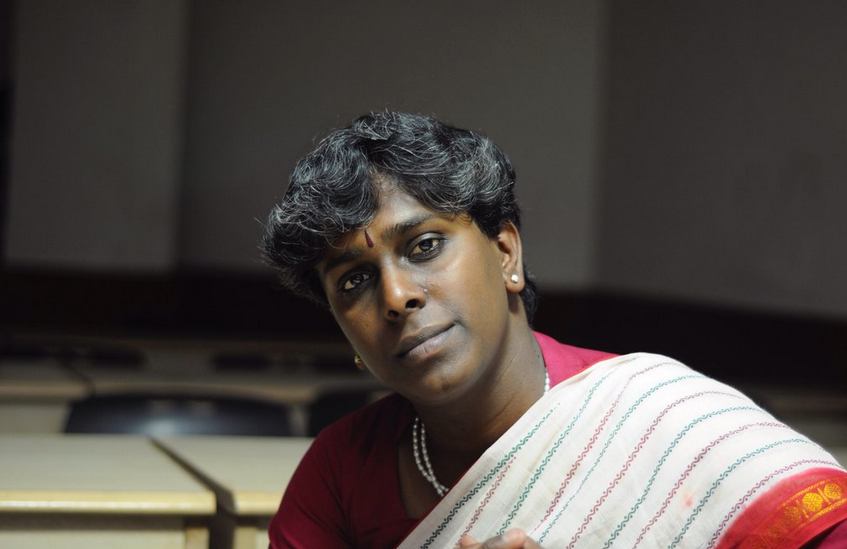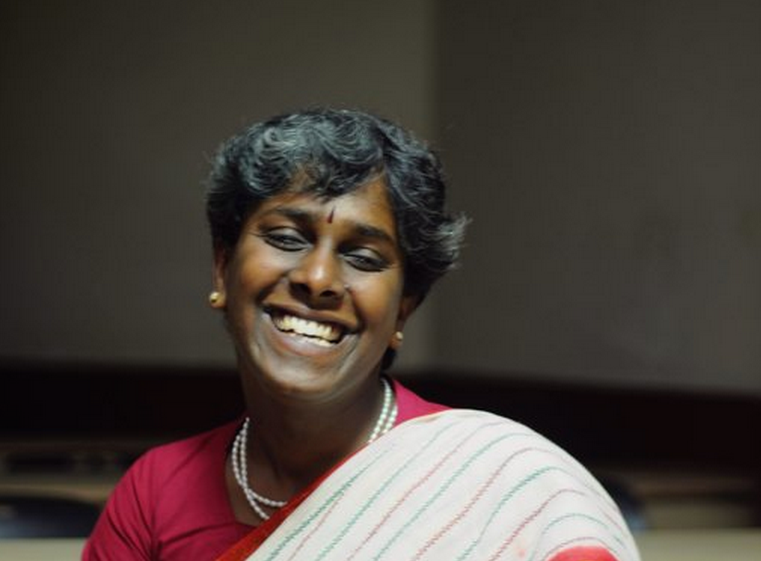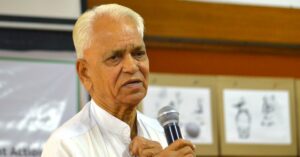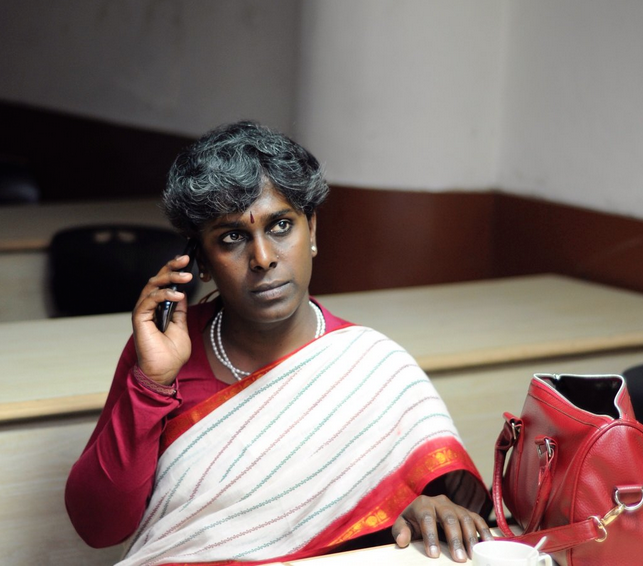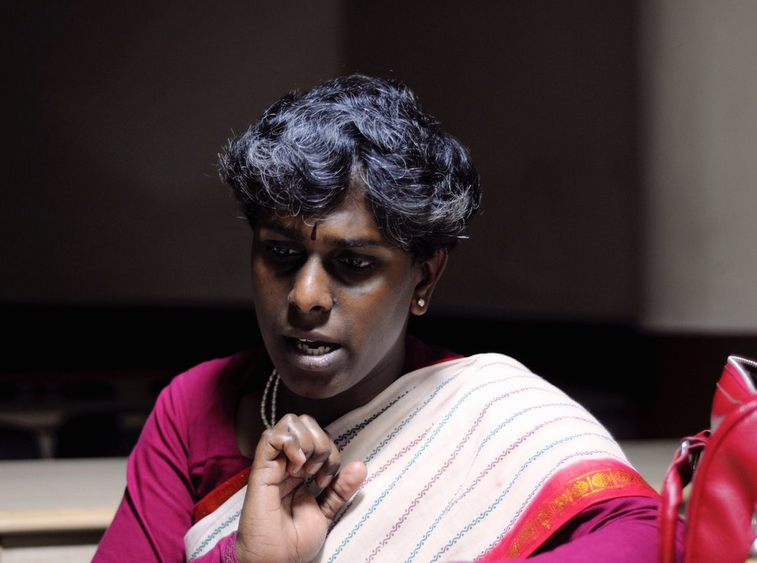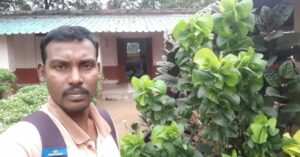At 12 She Wanted To Die. Today She Is Inspiring Hundreds To Fight For Transgender Rights & Justice.
This is the story of Akkai Padmashali, who was born a boy but chose to become a transgender. Her challenging but inspiring journey as she fought for her rights and acceptance in the society will move you to tears but also show you the true strength of the human spirit.
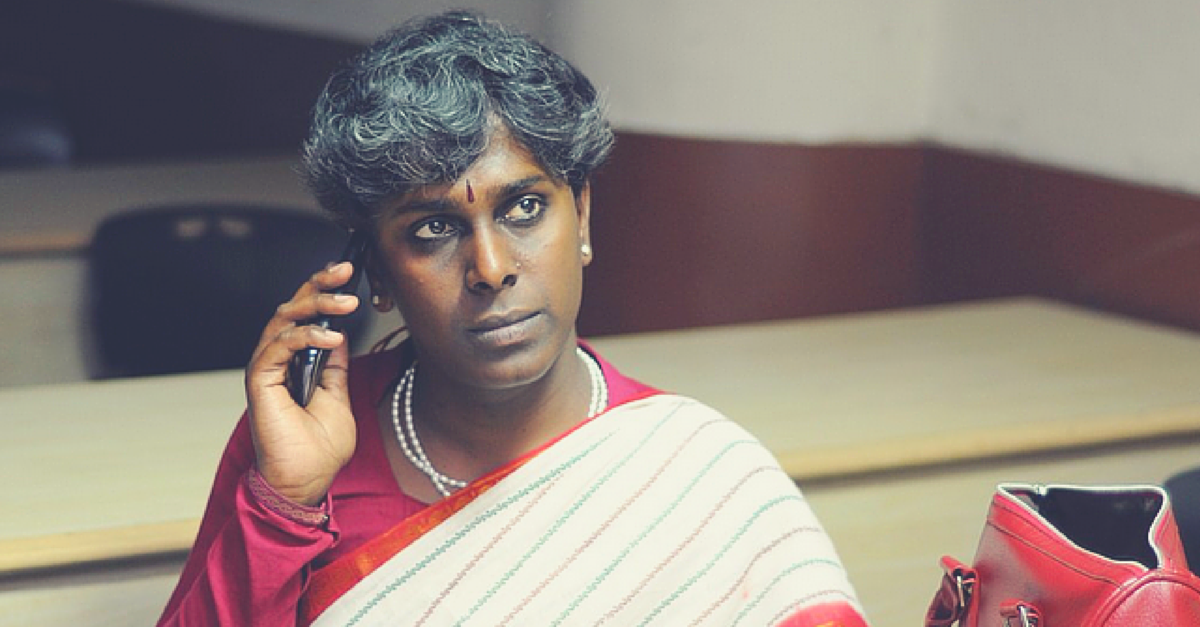
This is the story of Akkai Padmashali, who was born a boy but chose to become a transgender. Her challenging but inspiring journey as she fought for her rights and acceptance in society will move you to tears but also show you the true strength of the human spirit.
Born Jagadeesh, Akkai is a male-to-female transgender. She is from a middle-class family in Bangalore; her father was in the airforce and her mother, a homemaker. She had a confused childhood, often inviting her parents’ anger for wearing her sister’s dress or playing with girls. Her parents even took her to local doctors and traditional healers in the hope of ‘curing’ their child, but it didn’t change anything.
Akkai tried to make herself believe that she was a boy, but she strongly felt otherwise. At the age of 12, feeling confused and lonely, she tried to kill herself twice.
“But I didn’t die. I didn’t die.”
About four years later, Akkai disclosed to her brother that she wanted to be a girl. Her brother was the first to accept her as she is, and he tried to convince their parents, who still wouldn’t change their minds and continued to believe that she would change.
As a young teenager, Akkai would see other transgender women – or “eunuchs” as they are referred to in India – near a park in Bangalore on her way to college. One day she picked up the courage to talk to them and told them about her identity dilemma.
“Don’t become like us,” they told me. “If you become like us, there are only two options for you – begging or sex work.”
But Akkai wanted to be like them; in fact, she knew she had to become like them. And she did. Sadly, she also had to start offering herself to men for money at the same park in Bangalore.
“I did sex work for four years. My parents believed that I was an office assistant in a private company.”
Thinking about those four years of her life brings tears to Akkai’s eyes even now. But, ironically, it is in those four years that she came to know that there are many others like her. She never felt lonely any more. She never felt like wanting to die anymore.
Seeing the sexual violence that others like her face everyday, Akkai was motivated to join Sangama, a local NGO that works with sexual minorities.
With Sangama, she realised the importance of educating the policy makers and the judiciary about the problems faced by people belonging to sexual minorities in India. (Section 377 of the Indian Penal Code makes sexual acts between two persons of the same sex and other sexual activities that are “against the order of nature” punishable. This leaves scope for sexual minorities to be exploited.)
“Why should I die? Let me fight for my community members. I have a huge responsibility on my shoulders.”
Akkai couldn’t complete her education and she hasn’t studied beyond high school, but she speaks near-perfect English. She was invited by the Indian President to attend the swearing-in ceremony of the Chief Justice of India. She was also invited by the International Bar Association to speak about the legal rights of sexual minorities, in a conference held at Tokyo in October 2014.
After the Supreme Court of India acknowledged ‘transgender’ as a third gender in all forms and legal documents (adding a ‘T’ to the usual options of ‘M’ and ‘F’), Akkai was the first in the country to get a driving licence stating her gender as female. But she still has not forgotten the difficulty she faced in getting a passport stating the gender of her choice.
Akkai is founder-member of Ondede (meaning ‘convergence’ in Kannada), an organisation that aims to create awareness about sexuality, sexual diversity and the right to choose one’s sexual orientation.
“Being a transgender is not easy. People laugh at you, discriminate against you. You don’t have access to buses, public toilets, office spaces. But things are changing now.”
Like this story? Or have something to share? Write to us: [email protected], or connect with us on Facebook and Twitter (@thebetterindia).
This story made me
- 97
- 121
- 89
- 167
Tell Us More
We bring stories straight from the heart of India, to inspire millions and create a wave of impact. Our positive movement is growing bigger everyday, and we would love for you to join it.
Please contribute whatever you can, every little penny helps our team in bringing you more stories that support dreams and spread hope.






